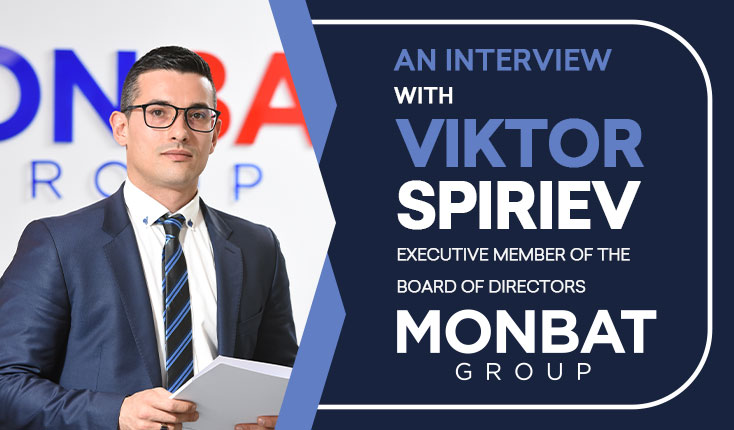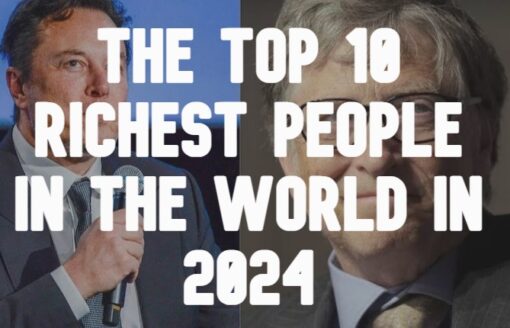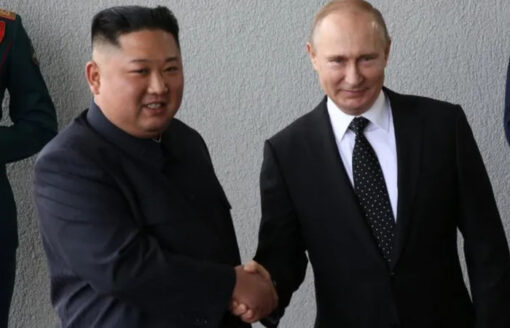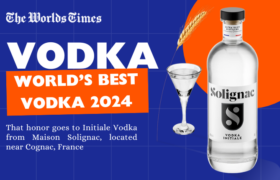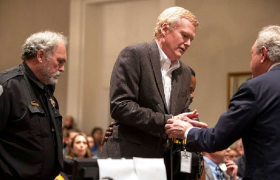Monbat’s five-year business plan reveals a dynamic approach to the evolving global battery market. The company aims to expand its reach in Lead-Acid and Li-Ion solutions, capitalizing on emerging trends. Sustainability takes center stage with a commitment to enhancing recycling technologies in the lead-acid segment. In the Li-Ion domain, Monbat focuses on niche high-power applications and seeks strategic partners for scaling operations. The company’s innovative drive extends to diversification into bipolar batteries. Geographically diverse, Monbat targets key markets and maintains competitiveness through vertical integration. Investments are directed towards energy efficiency and reduced carbon footprint. Collaborations with industry organizations strengthen Monbat’s position, reflecting a commitment to responsible business practices. The leadership’s advice underscores the importance of a strong corporate purpose in navigating a technologically dynamic and socially conscious business landscape.
Charting Growth Horizons
We started the interview by asking, “Can you elaborate on the specific plans for market expansion mentioned in the five-year business plan, especially in terms of increasing volumes sold and entering new export markets for both Lead-Acid and Li-Ion high-power solutions?”
Viktor replied, “Worldwide, battery market is expanding in both total volumes and consumer segments and Monbat is intending to make the maximum of the current trends. However, emerging opportunities require from Monbat management clear focus and precise planning but the biggest challenge in decision making is to get used to stop asking “WHY should we do this?” and begin to ask, “WHY NOT consider these new opportunities?”. On one hand, Monbat’s long-history specialization in SLI (starter, lighting, and ignition) batteries is expected to result in flat sales on traditional European markets, where currently the trend toward electrification of the transportation is strong and stable. On the other hand, the developing markets, e.g. In Africa, will outperform them because classical combustion engines will remain leading in the transportation systems. Even in North America, even though this market cannot be defined as emerging, the interest in cars with combustion engines remains high. Lately, Monbat exhibited at SEMA Show in Las Vegas and our sales team reported considerable interest in our SLI batteries from distributors in North America. Being a market, counting over 300 million vehicles, USA and Canada will be in our focus for the next years.
Additionally, the interest in renewables energy installations featuring battery energy storage systems (BESS) opens another considerable opportunity – entering the BESS market in both residential and commercial segments. This is a market with already significant volumes and even better growth perspectives. What’s more, the needs of the developed and developing markets for flexible storage solutions overlap to a great degree and systems can be largely unified. Our expertise in lead-acid batteries empowers us to present them as lithium-ion’s competition because they are cheaper, safer and most importantly – almost fully recyclable.”
Monbat’s Pioneering Moves
The Worlds Times: With the emphasis on recycling and sustainability, how does Monbat plan to enhance its recycling technologies and capacities in the lead-acid business segment, and what specific innovations are being considered within the Recycling division?
Viktor replied, “In the battery business recycling is not a trendy “business accessory” but an integral part of the value chain for 30 years now. The circular economy is not the leading; it’s the only relevant principle for doing business. The lead-acid batteries are already recyclable up to 96-98% of their bulk mass. From lead and lead alloys, through the different types of plastics, up to the electrolyte – all the mentioned battery components are subject to recycling and brought back in the manufacturing process. Practically, our battery manufacturing is fully supplied with recycled lead and plastics, and in certain market situations we can afford to sell our surplus of these raw materials.
Our efforts are targeted at the continuous increase in the effectiveness of our recycling plants and the reduction of energy consumption in the processes we operate. In the last 3 years the Italian engineering company STC S.r.l., part of Monbat Group, developed and deployed in our plants in Serbia, Romania and Bulgaria systems for mechanical recompression of natural gas, improving the effectiveness of the paste desulphurization lead recycling sub-process where the actual annual combined saving of natural gas consumption is about 5M m3. In the long-run, our main objective will be to eliminate altogether natural gas consumption in lead recycling and to upgrade to hydrometallurgy which has very low carbon footprint by producing pure lead oxide directly from desulphurized lead paste, thus eliminating any CO2 intensive pyrometallurgical processes. Our engineering company STC S.r.L. has already patented this innovative production process and has proved its viability in a small-scale environment. Our next step is to industrialize it in one of our existing recycling units.
Furthermore, we are also aiming at changing some of the mainstream technological processes used currently in the recycling industry – for example the desulphurization of lead paste with Sodium Carbonate and the production of Sodium Sulphate – to desulphurization with UREA and the production of Ammonium Sulphate. The use of UREA is STC patented technology which offers great advantages in terms of cost reduction compared mainstream technology – leading to several times lower desulphurization costs with the resulting by-product (Ammonium sulphate) having way bigger potential for utilization – e.g. to be used as fertilizer, rather than the current by-product of Sodium Sulphate which is facing a decreasing market in solid detergents.”
Powering the Future
The Worlds Times: Could you provide more insights into Monbat’s strategy for the lithium-ion business under the EAS Batteries brand, particularly in terms of addressing niche high-power applications in aerospace, defense, marine, and public transportation?
Viktor replied, “We succeeded to transform EAS into a well-functioning manufacturing company holding patented technology and small series of products with high added value – I’m speaking about the Li-ion battery modules for marine use marketed as Easy Marine. Additionally, EAS Batteries keeps its scientific and research potential, and this should be considered as one of company’s strengths as currently the company is working on development contracts with renowned automotive industry players – such as BMW.
It’s clear for us that finding a strategic investment partner will be crucial for scaling up our current operations and, of course, our efforts are aimed in this direction. We’re proactively negotiating with stakeholders but it’s too early to get in detail.”
Strategic Innovations
The Worlds Times: The strategic plan mentions the implementation of new strategic projects. Can you share more details about these projects, especially the diversification into bipolar batteries and the expected incremental EBITDA effect?
Viktor replied, “One of the most distinctive characteristics of Monbat is the Group’s innovation strive. We keep investing in innovations and work hard to deploy them in serial production in the shortest time possible. Bipolar batteries are high on this process agenda. Still, its revolutionary technology and the development period appeared to be longer than initially forecasted. Therefore, I wouldn’t project short-term effect on the EBITDA.”
Monbat’s Strategic Markets and Expansion
The Worlds Times: Monbat is geographically diversified, with a presence in over 70 countries. Can you highlight the key markets for Monbat in 2022 and shed light on the strategies for expanding into new growth markets outside the EU, such as Africa, Saudi Arabia, and the UK?
Viktor answered, “Our biggest advantage remains the flexibility in the engineering and manufacturing of new battery models. Our trade partners highly value our proactiveness and this approach puts us in a favorable position, both in the lower price range segment and the premium products. Stable high-quality and well-established warranty are complementing the market trust. For the end-consumers Monbat and Start are brands with seamless reputation particularly on the markets mentioned in your question. In the UK we have a long-year partnership with Alpha House, whereas they are offering our industrial batteries with the joint brand Alpha House Powered by Monbat. Our Tunisian enterprise – Batterie NOUR – has been currently emerging in tens of African and Middle East markets – Morocco, Algeria, Saudia Arabia, Kenya, Tanzania, etc., as well as receiving favorable feedback from expanding to the Mediterranean countries in Europe (France and Italy).”
Sustainable Prowess
The Worlds Times: How does Monbat maintain its competitive edge, particularly in terms of vertical integration and technological advancement, and how does the company handle fluctuations in raw material prices, especially for lead in the LME market?
Viktor replied, “Lead batteries are a century-old technology. Nevertheless, the innovation in the technology never stops! The competition with other battery technologies (“chemistries”) is motivating us to improve our products in every aspect possible and at a pace. E.g., the wide-spread AGM (Absorbed-Glass-Matt) batteries are needed in the contemporary cars with “Start-Stop” systems. The technology was invented in the early 1980s. And till the end of the decade were considered avant-garde technology used by the air force. Today, it’s practically in every new car and Monbat might have helped with that as we were the first European producer to leverage this technology in the early 2000’s.
Speaking about the future, Monbat’s biggest share of innovation projects is related to the Green transition. E.g., the engineering of the new batteries is always considering their recyclability.
Still, our greatest effort is aimed applying carbon-nano technology (Carbon Nano Tubes/CNT) in our industrial batteries, which is meant to improve their performance – charge acceptance and prolong their life in service and therefore make them more competitive with Li-ion products in the field of telecom, UPS, energy storage and industrial applications.
In the field of logistics – we are succeeding by sticking to flexible and precise planning. Our supply chain is highly independent (due to the 100% vertical integration model with respect to lead and lead alloys consumed and also plastics). Price volatility of raw materials – specifically lead which forms 65% of the cost of production is managed via indexation clauses in our contracts with customers, creating a natural hedge against price fluctuations.”
Fueling Growth in Core Domains
The Worlds Times: The group strategy emphasizes investing in core business domains. Could you elaborate on the specific investments planned in the Lead-Acid Battery, Recycled Industrial Materials, and High Power & Energy Lithium-Ion Solutions domains?
Viktor replied, “Currently, our investment program is focused on energy effectiveness and carbon footprint reduction – these are priority goals as a responsible producer in the EU. We plan to increase the share of battery components, sourced from ‘lightly’ processed raw materials. E.g., soon we are about to launch industrial batteries in boxes made of recycled plastics, which doesn’t require ‘fresh’ pigmentation. Our clients are supporting us strongly in this effort.”
Strategic Alliances & Championing Innovation
The Worlds Times: Monbat is associated with various organizations such as BICA, ILA, and the European Battery Alliance. How do these collaborations contribute to Monbat’s goals, and what specific initiatives or projects is the company involved in within these organizations?
Viktor replied, “Our partnership with all sectoral and business organisations is generally aimed at business environment improvement. With organisations like CBI (part of ILA) and EBA we are striving to cooperate intensively for sustaining the existing lead-acid battery manufacturing and the added value it creates for the national economies. We are partnering in international projects and soon we will announce a successful project. At the same time, as the owner of EAS Batteries we see good potential in the advanced development of Li-ion chemistry as well, with a strong emphasis on broad cooperation for implementing an economically feasible technology for recycling.”
Then we asked, “As a member of the Consortium for Battery Innovation (CBI), what role does Monbat play in developing bipolar technology, and how does the cooperation with CBI contribute to the advancement of battery energy storage systems (BESS)?”
Viktor replied, “CBI doesn’t have direct relation to our bipolar programme. We are exchanging information for the progress.”
Advice from Monbat’s Leadership
Lastly we asked, “What advice would you give to other entrepreneurs?”
“We are living in a world, technologically dynamic but also full of controversies due to the economic inequality and the unsolved geopolitical problems. I believe that the future belongs to the businesses that, except sound strategy and available capital, possess strong vision of their corporate purpose. Monbat is successful company, with global exposition and good products but its mission is to work further on creation and mass implementation of affordable and reliable power and energy solutions – from the battery in the family car to the advanced industrial BESS. Of course, profit is the insurmountable prerequisite in order to have the business at all! Yet, even not in the long-term- but the mid-term planning, societies, governments, and other responsible businesses will prefer to cooperate with companies, projecting themselves as “corporate citizens” with impeccable reputation – we would not pass up this chance for anything in the world!” Viktor concluded
Connect Viktor Spiriev on LinkedIn
Visit MONBAT GROUP to learn more about it
